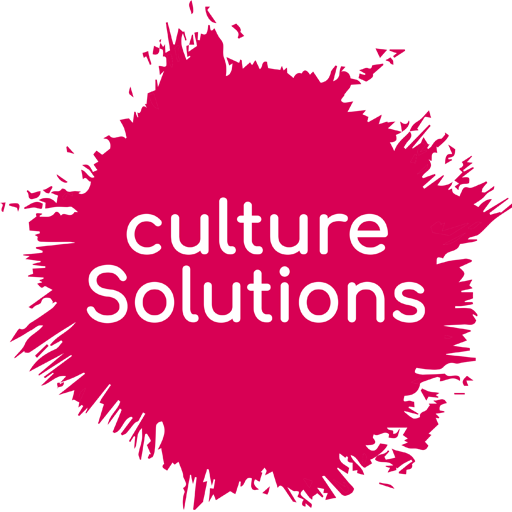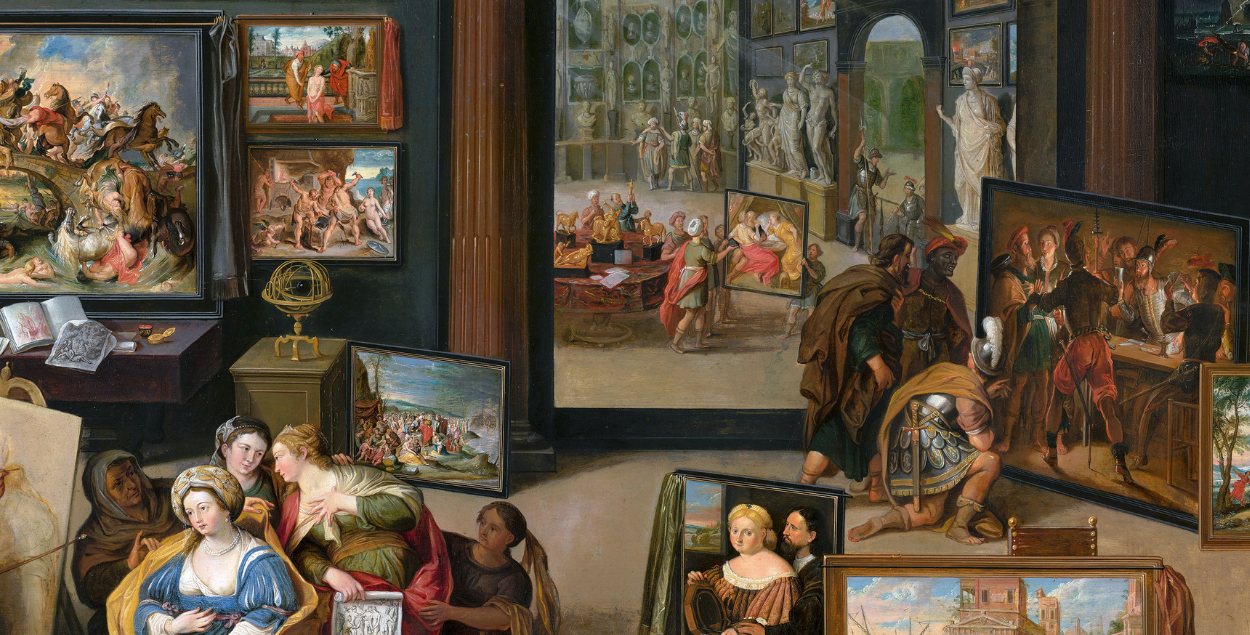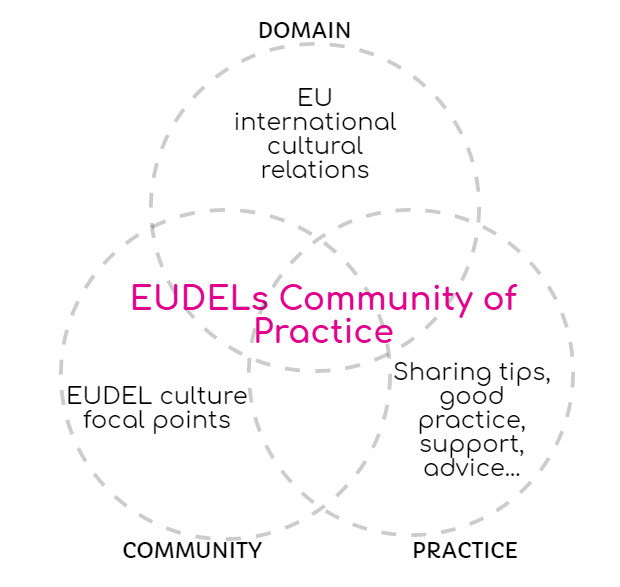#TeamEurope: A community of practice on culture for EU Delegations
By Nicole McNeilly, Celia Zayas, Domenico Valenza & Damien Helly
Since the adoption of the 2016 Joint Communication on culture in EU international relations, EU Delegations are expected to deliver on this new priority. Most EU Delegations (EUDEL) across the world have a culture focal point in charge of developing international cultural relations with partner countries and partner organisations.
culture Solutions teams have, since 2018, delivered DG INTPA’s (formerly DG DEVCO) annual three-day training – Culture Seminars – for EU Delegation cultural focal points from across the world. A recurring theme of previous Culture Seminars has been the need and desire – expressed by participants – for a Community of Practice (CoP). Such a mechanism would support EUDEL colleagues in how they begin to embed culture across the EU’s external actions. After the culmination of the 2021 Culture Seminar (held completely online for the first time), we thought more carefully about what a CoP for EUDEL culture focal points might look like.
Here we summarise our research and recommendations. In a second blog, we talk about the Community of Practice methodology and how to build and strengthen culture-related European communities of practice on international cultural relations that have a global remit and inclusivity at the core.
What is a Community of Practice (CoP)?
A ‘community of practice’ can be described as a group of people bound together by shared interest and practice in a given area and engaging continuously in a process of collective learning and improvement. Going beyond the more simple network structure, a CoP relies on three fundamental features: the domain, the community and the practice(s).
Community of practice from existing literature and practical application to the community of practices of EU DELs cultural focal points. Elaboration by the authors from Etienne and Beverly Wenger-Trayner, 2015
The domain considers what provides a common ground between peers – in this case, culture in the EU’s external relations. The community refers to the who – the primary group(s) of people that belong to it. In this case, it would comprise at least EU staff dealing with international cultural relations. Finally, the practice is related to the how – the day-to-day interactions in the community and a repertoire of activities and resources: campfire stories, best-practices sharing, communication tools and solutions to shared problems.
Why build culture-related Communities of Practice for EUDEL staff worldwide?
There are three overarching motivations behind creating a CoP for EUDEL cultural focal points and their colleagues.
- First, knowledge-sharing goals include increasing peer-sharing on best practices, resources and challenges between EUDEL colleagues and with HQ on a variety of topics: dealing with cultural differences (intercultural skills), culture and climate change, the cultural dimension of digitalisation transformations, cultural heritage management and diplomacy, culture and sustainable development, to name but a few. Similarly, a specific CoP should strengthen a #TeamEurope approach through effective communication, knowledge/know-how sharing and partnership-building with EU Member States, National Institutes of Culture, EUNIC and EU-funded programmes such as the Cultural Relations Platform, Erasmus+, Jean Monnet Centres and regional and national public diplomacy programmes.
- Second, operational motivations include ensuring the storage and circulation of institutional memory (or ‘memory management’) and enhancing connections and exchanges between culture focal points (CFPs) operating in the same geographical region. A CoP would help new colleagues make sense of their role and expectations of how culture should and could be mainstreamed in wider policy objectives.
- A third motivation can be described as building relationships – between EUDELs and HQ and between EUDEL colleagues and with other relevant EU – and non-EU – stakeholders (like the #TeamEurope approach mentioned above). It also includes sharing tips and tricks towards effective partnership working with the local and national cultural and creative sectors, with civil society organisations and other private sector actors. CoPs contribute to good relationships, transparent communications and support networks, which in turn create more effective environments to deliver positive change.
What does success look like?
A CoP does not grow overnight and the true success of a CoP might only be visible after several years.
Dedication of key staff, commitment to a long-term vision and the investment of resources in the early stages (years or months) is key to sustainability.
Objectives need to have the buy-in of members (and their line managers) but also need to be flexible to adapt to change.
Clear and realistic(yet ambitious) success indicators, considered at least annually, would help the monitoring of its progress.
#TeamEurope impact through culture-related Communities of Practice
An EUDEL CoP for culture should ultimately create impact that ripples beyond the immediate members, EUDEL culture focal points, to their colleagues (who may also join the CoP either through interest or necessity) in the EUDEL, their #TeamEurope partners and local cultural sector actors. While membership may be restricted to EUDEL colleagues, the impact is not: more knowledge, stronger networks and better collaboration benefits everyone who wants to see culture more effectively mainstreamed in EU external relations.
We recommend that the CoP should be cemented as a milestone in EU global affairs and international cultural relations policy and implementation documents (as in the case of the EU concept on cultural heritage in crises). This will increase the CoP’s reputation and make it an established and sustainable output for future EU global action. Our cS training experience with EU Delegations and staff shows that this is where the impact and sustainability in the mainstreaming of culture in the EU’s international relations lies.
Importantly, we emphasise the need not just to create one stand-alone community of practice for culture, but to consider how the approach can support specific and targeted collaboration in areas of culture in the EU’s external relations, like in cultural heritage protection and peacebuilding.
If you want to discuss more about communities of practice within the multiple areas of focus within EU international cultural relations, please get in touch!
The views expressed in this article are personal and are not the official position of culture Solutions as an organisation.
Image credits: Willem van Haecht


